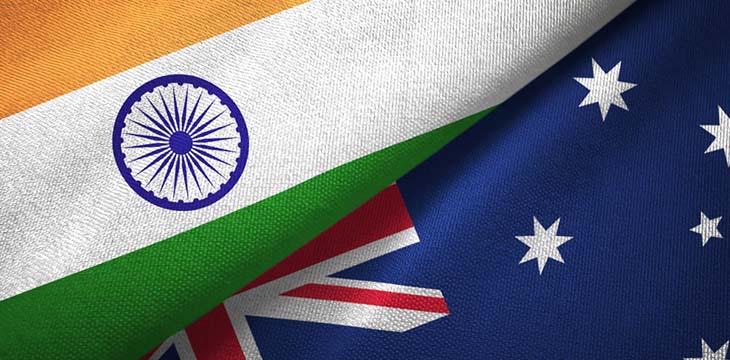
|
Getting your Trinity Audio player ready... |
India and Australia have pledged to strengthen bilateral ties to shape the governance framework of emerging and disruptive technologies in the wake of rapid innovation and adoption rates.
Sarah Storey, Deputy High Commissioner for the Australian High Commission to India, stated that greater international cooperation ensures the safe usage of emerging technologies. Storey commented at a technology event by CUTS International and IIIT Bangalore, with Indian policymakers in attendance pledging to pursue global regulatory standards.
Both nations are keen on establishing uniform standards in the areas of artificial intelligence, blockchain technology, 6G, and Big Data. Storey pointed out that it is necessary for “like-minded countries to tackle the challenges presented by critical and emerging technologies, including 6G.”
Her comments follow the signing of a Memorandum of Understanding (MoU) between India and Australia on September 3, which is expected to see both nations collaborate on technical standards, spectrum management, and telecoms policy.
Both nations are laying the foundation for 6G, proactively establishing an ethical framework. At the event, Deputy Head CUTS International Ujjwal Kumar revealed that the proposed ethical framework will cut across several principles, including privacy, data protection, healthy competition, inclusivity, and environmental sustainability.
Speakers at the event warned against “micro-regulation” of 6G and other emerging technologies, citing the possibilities of stifling innovation in the space.
Both nations have opted for divergent paths with AI, with Australia pushing for a blanket ban on high-risk AI tools, seeking comments via a public consultation. On the other hand, the Reserve Bank of India (RBI) has embraced the technology, proposing to launch AI-powered conversational instant payments.
The same trend is identifiable in blockchain technology, with Indian regulators eyeing the technology’s use in finance with skepticism. However, Australia’s central bank has launched a stablecoin to improve the state of cross-border transactions for citizens.
Despite the divergence, both nations remain resolute in cracking down against digital currency scams through public sensitization and heightened enforcement action.
Uniform global rules offer promise
India made the development of uniform global regulatory standards for digital currencies one of the focal points of its G20 presidency. Over the last ten months, India says the G20 has made considerable progress in crafting international rules after lengthy deliberations with central banks and finance Ministries of member nations.
“We are talking to all nations, that if it requires regulation, then one country alone cannot do anything,” said India’s Finance Minister Nirmala Sitharaman.
In AI, the U.K. is pushing for an international approach for democratic nations through a global AI summit in November. China, the European Union (EU), and the U.S. have already seized the initiative in crafting local legislation for their AI ecosystems, paying little heed to global collaboration.
In order for artificial intelligence (AI) to work right within the law and thrive in the face of growing challenges, it needs to integrate an enterprise blockchain system that ensures data input quality and ownership—allowing it to keep data safe while also guaranteeing the immutability of data. Check out CoinGeek’s coverage on this emerging tech to learn more why Enterprise blockchain will be the backbone of AI.
Watch: Combat IQ’s Tim Malik – Harnessing the Powers of AI and Blockchain
Recommended for you
Lorem ipsum odor amet, consectetuer adipiscing elit. Elit torquent maximus natoque viverra cursus maximus felis. Auctor commodo aliquet himenaeos fermentum
Lorem ipsum odor amet, consectetuer adipiscing elit. Accumsan mi at at semper libero pretium justo. Dictum parturient conubia turpis interdum

 11-22-2024
11-22-2024


